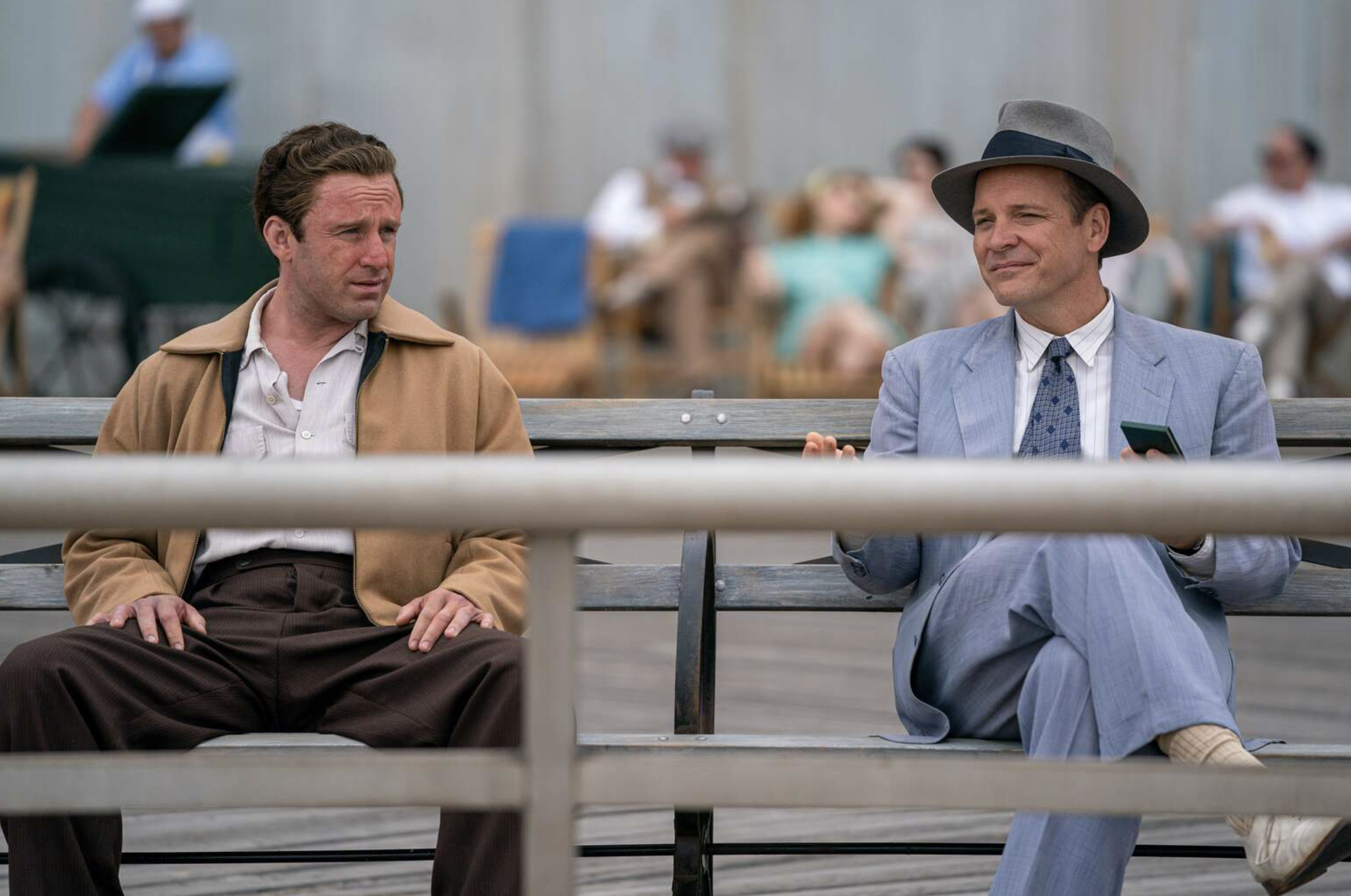Ben Foster fights for his life in “THE SURVIVOR” | REVIEW
Barry Levinson is known for his natural filmmaking style and ease with portraying realistic characters and dialogue. “The Survivor” is no exception.
His latest project is, likely, the loftiest one yet.
Working from a powerful screenplay from Justine Juel Gillmer, the film tells the true story of Harry Haft, a Jewish man who, while in Auschwitz, became an unstoppable fighter, surviving by winning fights against his fellow prisoners. Haft’s skills proved to be invaluable to one of the camp’s German officers (played quietly and menacingly by Billy Magnussen). The Nazi sees how he can make money off Haft’s skills as a fighter.
It is true that Haft makes it out of the camp, but his quest for a peaceful new life is constantly haunted by the unshakeable memories and nightmares of his time in Auschwitz.
The decision of Levinson and cinematographer George Steele to shoot only the Auschwitz sequences in black & white have drawn comparison, unfair, to Spielberg’s “Schindler’s List.”
It has long been said that, as we age, our memories begin to exist only in black and white. Haft’s memories of that time have no color, as he made a faustian pact, fighting for his survival during that time. It is important to the film’s impact to show those moments without color, cold and bleak.
Ben Foster has long been one of the great actors working today. His skills show an old school dedication that most actors are not capable of today. Starring as Haft, Foster is compelling and poignant and turns in one of his finest performances. This is truly the type of role made for dedicated followers of “The Method” style of acting. Foster, as he does in most of his work, becomes Haft and inhabits the man’s soul. There is not one moment where he can be caught acting. His transformation is incredible.
Thanks to Levinson’s unobtrusive style of filmmaking, the supporting cast matches Foster’s commitment.
While looking for his wife (hoping she survived the camp), Haft chases down a fight with Rocky Marciano. Danny DeVito plays the legendary boxer’s trainer, Charlie Goldman (who hides his given name, Israel). Goldman offers to help Haft train, as he knows Marciano will destroy his opponent. DeVito’s scenes with Foster and his crew (John Leguizamo and Paul Bates) are colored with Levinson’s easy-going style and ability to give his actors freedom to improvise.
Peter Sarsgaard gives a sweet and nuanced turn as reporter Emory Anderson, who published Haft’s story and unwillingly gave him the reputation of a traitor among the Jewish community. The two men find a bond more than a true friendship, formed by Emory’s need to tell Haft’s tale and the importance of getting his story to the masses.
Vicky Krieps (an actress methodical and elegant) is Miriam Wofsoniker, who helps survivors find their loved ones who were separated from them during the war.
Wofsoniker helps Haft find his missing wife. The two form a bond that moves beyond friendship and ultimately into marriage, but the smart screenplay doesn’t force affect from the two characters. Their relationship is not a romance but there is love between them. More importantly, there is understanding that Haft will never be over the loss of his wife and the innocence of his soul.
These truths will walk hand in hand with Haft for the rest of his life and there are times when he regrets surviving at the cost of so many. Miriam accepts him and every inch of his tortured soul. As they marry and have children, his life’s purpose begins to win over the pain. The scenes between Krieps and Foster are the most potent ones of the film.
If the film has one stumbling block, it could very well be Hans Zimmer’s score. His work here barely registers until his moving end credit piece. Even that falls victim to the ever-growing pedestrian compositions of today’s film scores. Zimmer’s score is not lofty enough. That said, “The Survivor” crackles with emotionality.
In the final sequence Harry Haft finally found his peace but his time in the concentration camp was always with him. His story (and Levinson’s film) asks us all to never forget.
news via inbox
Nulla turp dis cursus. Integer liberos euismod pretium faucibua



